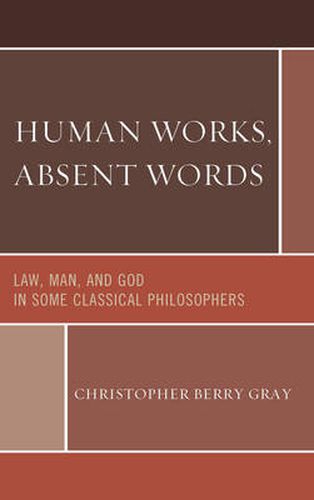Readings Newsletter
Become a Readings Member to make your shopping experience even easier.
Sign in or sign up for free!
You’re not far away from qualifying for FREE standard shipping within Australia
You’ve qualified for FREE standard shipping within Australia
The cart is loading…






What is said can be understood only when seen in the context of what is not said. Many ancient and medieval philosophers use this dynamic of presence and absence. Plato always recognizes that his expressions are energized by being set before other people. Aristotle’s dialectic between different sorts of public activity does the same. Anselm sees his writing as a test case for what it says. Bonaventure approximates his distance from trinity by finding its images at large. Aquinas makes legal norms approach the flexibility of facts. Ockham’s solution to holding goods without owning them impresses English jural doctrine. Las Casas’ refusal to fix first nations’ identity in deviant past activities hints at how to rectify contacts with first peoples today. This book shows how each author amplifies meaning in the distance between what he puts into his work and what he leaves unsaid.
$9.00 standard shipping within Australia
FREE standard shipping within Australia for orders over $100.00
Express & International shipping calculated at checkout
What is said can be understood only when seen in the context of what is not said. Many ancient and medieval philosophers use this dynamic of presence and absence. Plato always recognizes that his expressions are energized by being set before other people. Aristotle’s dialectic between different sorts of public activity does the same. Anselm sees his writing as a test case for what it says. Bonaventure approximates his distance from trinity by finding its images at large. Aquinas makes legal norms approach the flexibility of facts. Ockham’s solution to holding goods without owning them impresses English jural doctrine. Las Casas’ refusal to fix first nations’ identity in deviant past activities hints at how to rectify contacts with first peoples today. This book shows how each author amplifies meaning in the distance between what he puts into his work and what he leaves unsaid.